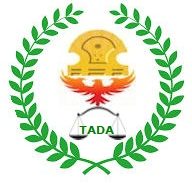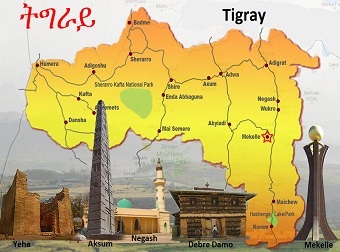[By Z Tesfay]
In clear and precise terms, it is imperative to delineate the functions, objectives, and responsibilities inherent to a government upon assuming office. Primarily, it is entrusted with safeguarding the welfare of its populace and shielding them from external threats. Regrettably, the government of Ethiopia fails egregiously in fulfilling these fundamental duties.
Despite irrefutable evidence of Eritrean incursions and pillaging within the sovereign territory of Northern Tigray, the government obstinately denies their presence, instead callously deflecting accountability onto the citizenry. This dereliction of duty is tantamount to delegating the critical responsibility of defending the nation to mere bystanders, raising profound questions regarding the loyalty and allegiance of those in positions of authority.
Moreover, rather than fostering unity and harmony amongst its citizenry, the current administration of Ethiopia actively instigates and exacerbates internal strife and discord, ostensibly to advance its own clandestine objectives. There exists a compelling inference that these conflicts are not only tacitly condoned but deliberately orchestrated to undermine and debilitate both the Tigrai and Amhara factions, thereby perpetuating a state of perpetual vulnerability.
In the face of its failure to quell the insurgency in Amhara, the government now appears to seek alternative adversaries to engage with and weaken. Similarly, the Oromo populace is ensnared in a web of deceit, being deceitfully enticed with illusions of supremacy at the expense of their compatriots. While the Oromo community undeniably possesses legitimate aspirations, these must not be pursued through duplicitous machinations designed to subjugate others.
It is abundantly clear that the present regime in Ethiopia harbors no genuine concern or vested interest in the welfare of the Oromo, Amhara, or Tigrai peoples. Instead, these ethnic groups are perceived as impediments to the realization of a grandiose and self-serving vision of prosperity, devoid of ethical considerations or moral imperatives.
It is incumbent upon all stakeholders to recognize the malevolent stratagems employed by the government to sow discord and division, and to steadfastly resist succumbing to these pernicious influences. Through collective vigilance and concerted action, the deleterious effects of these insidious maneuvers can be mitigated, thus safeguarding the integrity and unity of our nation.
Regarding Eritrea, the Abiy government not only denies Eritrean occupation in Tigray but also claims that Eritrea is within the territories that the Algiers agreement had rewarded. Firstly, it’s important to note that the Algiers agreement was considered null and void because it unilaterally halted and expelled the activities of the international community. Secondly, the border commission’s decision is meant to be implemented through delimitation, and no party is expected to claim territory by force.
Last but not least, amidst the current discourse, there is a concerning tendency to overlook the constitutional provisions, particularly in the context of Western and Southern Tigray, perpetuating rumors that these regions are subject to revision and disregarding federal constitutional principles. This rhetoric, fueled by misconceptions and biases, overlooks the diversity and significance of various regions within Ethiopia, such as Amhara Gojjam, Begemider, and Wello, which collectively comprise a more extensive populace than Tigray, Somaliland, and Oromia. It is crucial to approach constitutional amendments with careful consideration, as hasty decisions fueled by animosity can have far-reaching consequences. As wise individuals caution, thoughtful reflection is paramount, as the repercussions of constitutional changes may not solely impact the intended targets but reverberate throughout the entire nation, potentially undermining its unity and stability.

